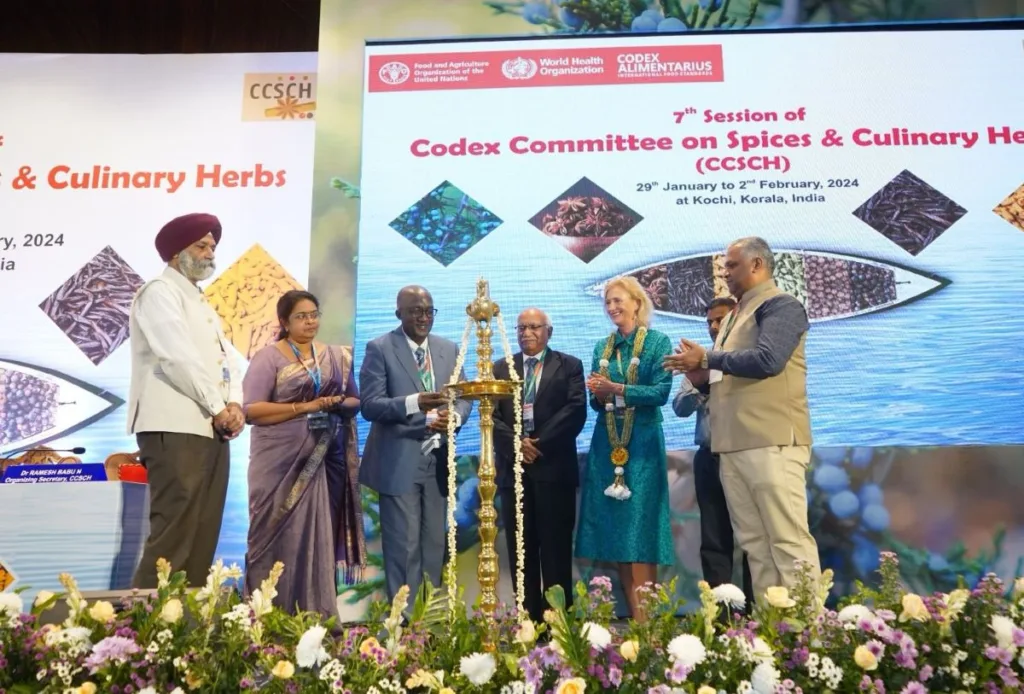The 7th session of the Codex Committee on Spices and Culinary Herbs (CCSCH) took place in Kochi from January 29th to February 2nd, 2024, marking a significant step forward for the international spice industry. This session was particularly noteworthy as it was the first physical gathering of the committee since the onset of the Covid-19 pandemic. A total of 109 delegates from 31 countries participated in this historic event.
One of the major achievements of CCSCH7 was the finalization of quality standards for five essential spices: small cardamom, turmeric, juniper berry, allspice, and star anise. These standards have now been forwarded to the Codex Alimentarius Commission (CAC), urging their adoption at the final Step 8 as fully-fledged Codex standards.
Breaking new ground, the committee successfully implemented a strategy of grouping spices, resulting in the finalization of the first group standard for ‘spices derived from fruits and berries.’ This groundbreaking standard covers juniper berry, allspice, and star anise.
In an unprecedented move, the draft standard for vanilla progressed to Step 5, indicating significant progress. It is set to undergo one more round of scrutiny by member countries before being discussed in the upcoming committee session.
The committee also embraced proposals for developing Codex standards for Dried Coriander Seeds, Large Cardamom, Sweet Marjoram, and Cinnamon, which were unanimously accepted. Work on draft standards for these spices is slated for future editions of the committee’s sessions.
A noteworthy development in CCSCH7 was the participation of a substantial number of Latin American countries for the first time, signifying a growing global interest in spice standards.
Looking ahead, the committee announced that its next meeting will take place after a span of 18 months. During this interim period, electronic working groups (EWGs) chaired by various countries will continue the multinational consultation process, relying on science-based evidence to develop standards.
The Codex Alimentarius Commission (CAC), jointly established by the Food and Agriculture Organization (FAO) and the World Health Organization (WHO), oversees international efforts to formulate widely accepted standards for human food. With a membership exceeding 194 countries, the CAC operates through various Codex committees, including the CCSCH, hosted by different member countries.
Established in 2013, the Codex Committee on Spices and Culinary Herbs has been hosted by India since its inception, with the Spices Board India serving as the Secretariat organization responsible for organizing the committee’s sessions. The standards developed by CAC, including those by the CCSCH, are recognized by the World Trade Organization (WTO) as international reference points for resolving trade disputes related to food safety and consumer protection.

